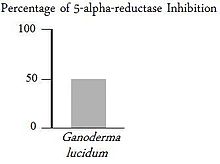just stop....
Propecia is a safe drug. Risk is low and persistent side effects are extremely rare.
I assume for most people whose life was "ruined" were in poor health already and propecia might have made it worse...
You are part of that 2% that got side effects! The rest of the remaining 98% are satisfied. Why don't you get that???
Propecia is a safe drug. Risk is low and persistent side effects are extremely rare.
I assume for most people whose life was "ruined" were in poor health already and propecia might have made it worse...
You are part of that 2% that got side effects! The rest of the remaining 98% are satisfied. Why don't you get that???


Comment